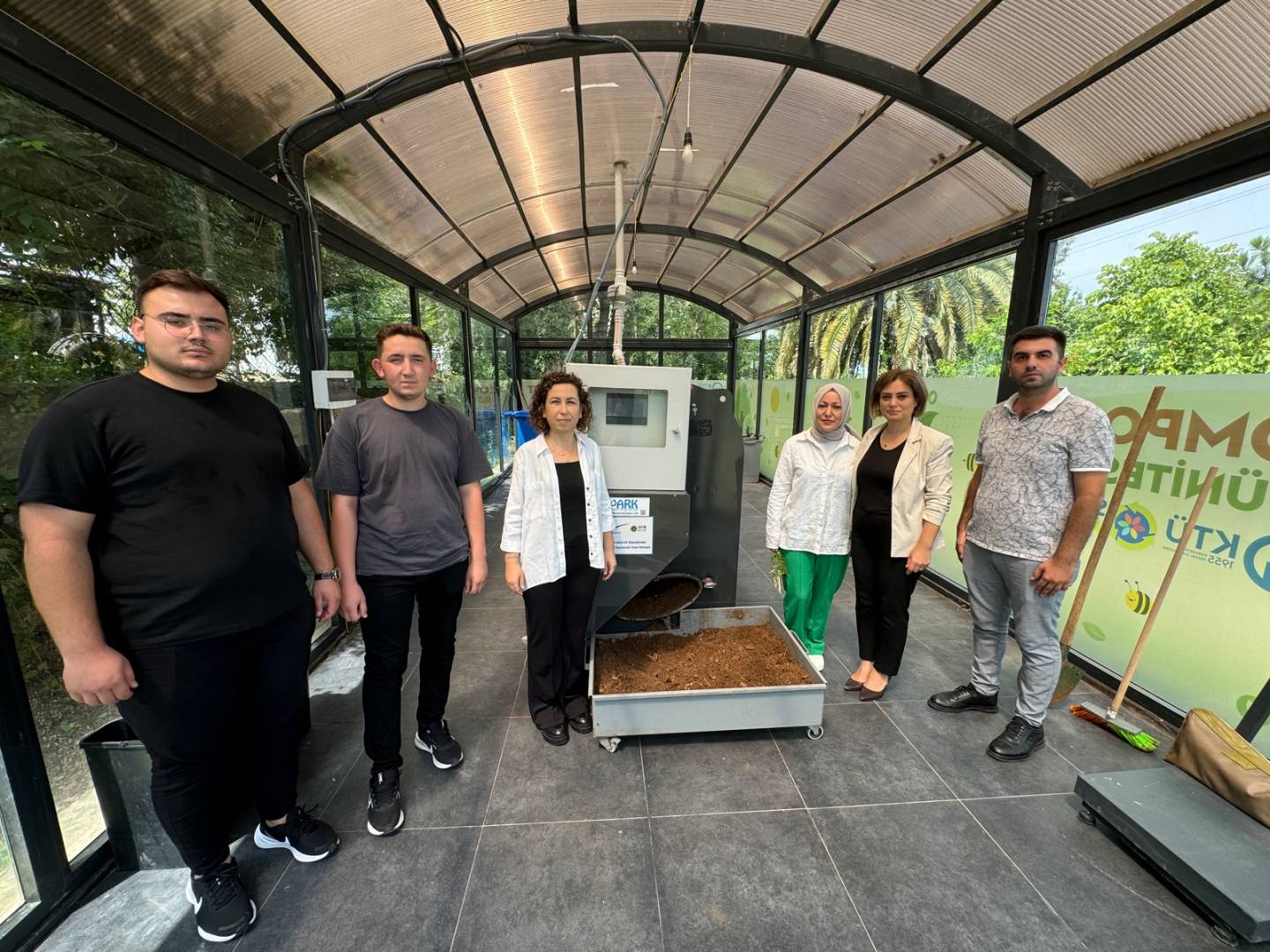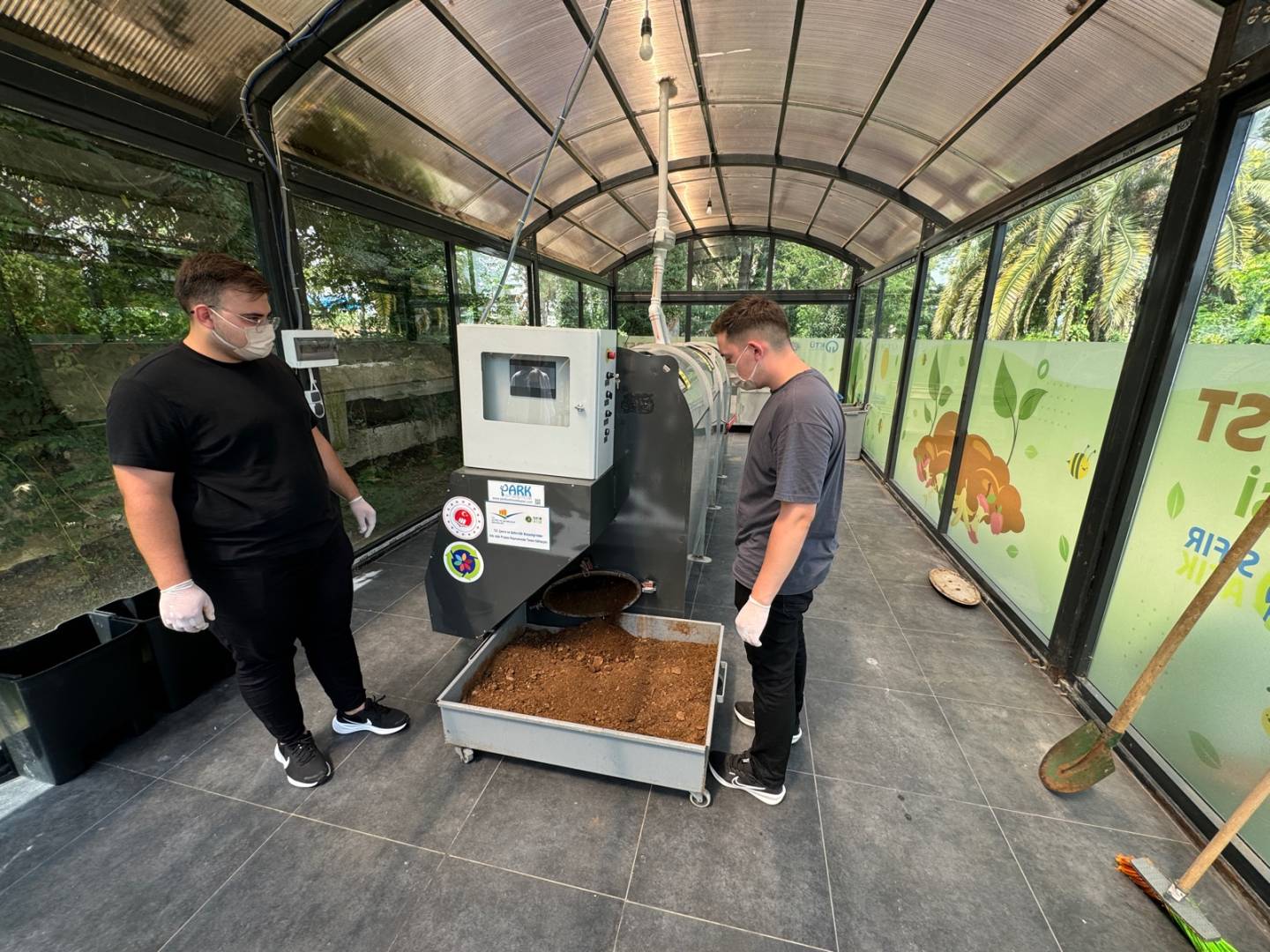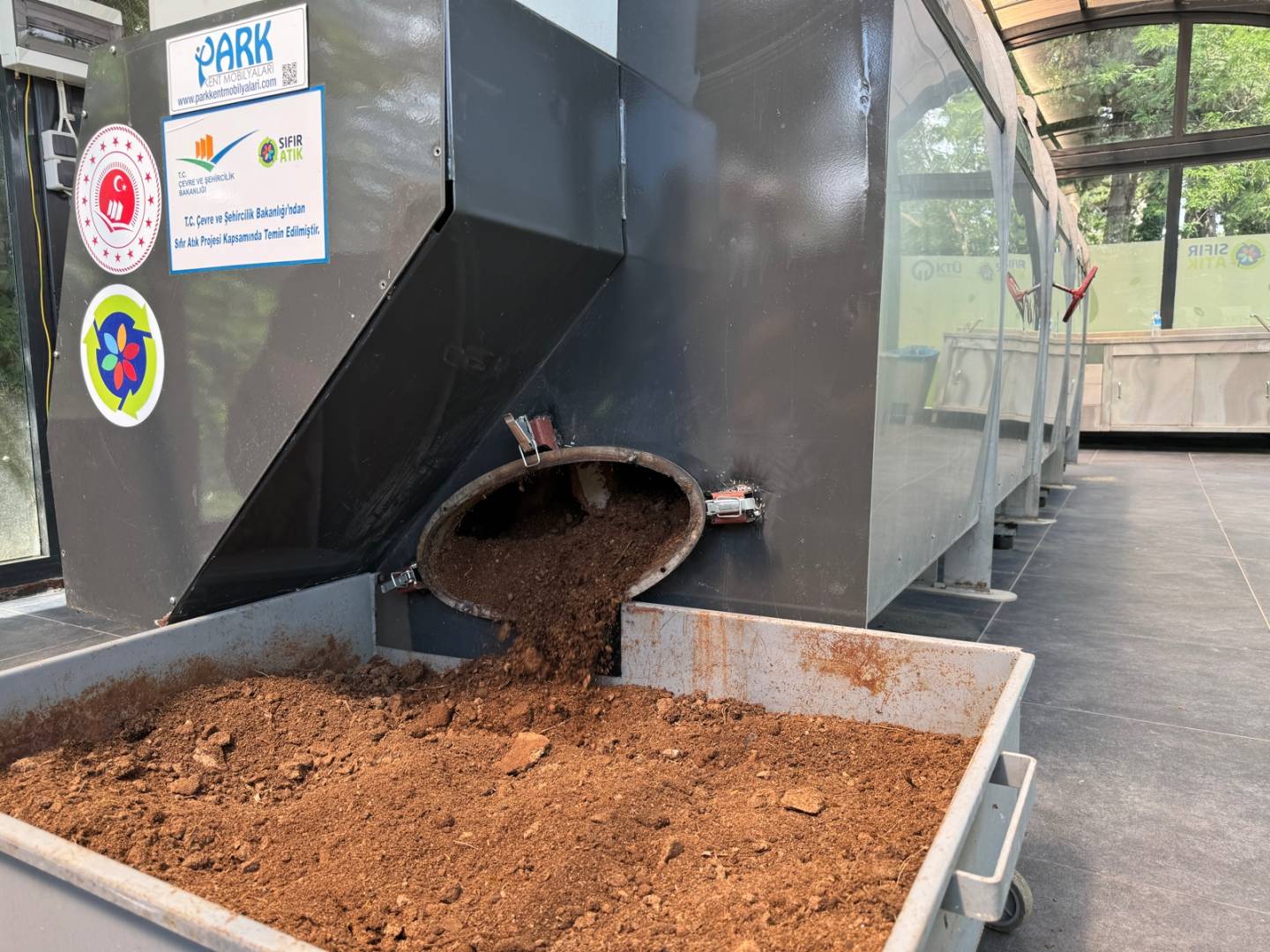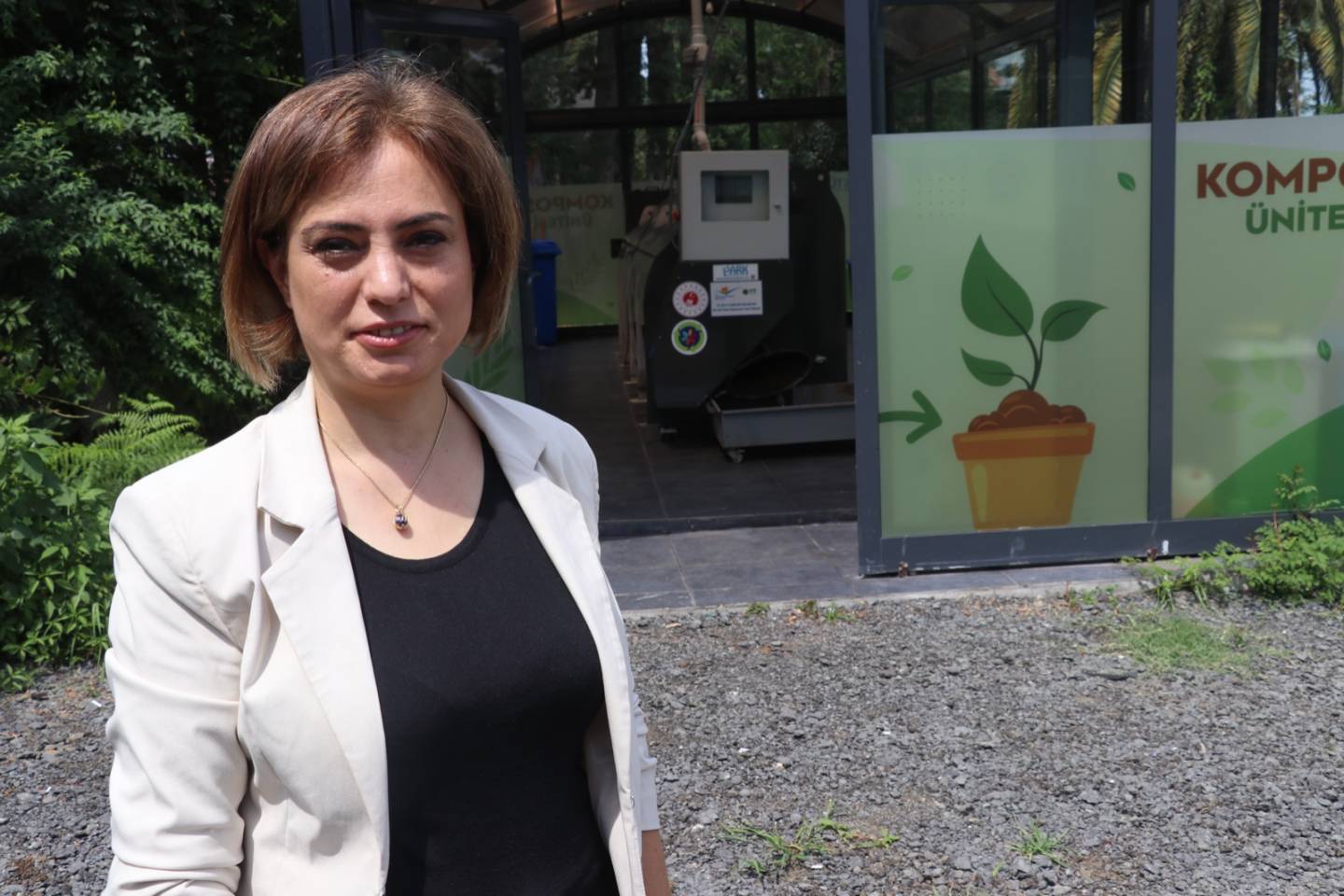CORPORATE
STUDENT
ACADEMIC
GOVERNANCE
RESEARCH
QUICK LINKS
6.5 Tons of Organic Fertilizer to be Produced Annually from Organic Waste
Organic waste collected from three dining halls on our university campus is being transformed into organic fertilizer at the Compost Unit as part of our recycling projects.
The Compost Unit, transferred to our university by Hayrat Municipality as part of the Zero Waste Project, has been operational following its setup and renovation. Organic waste from the three dining halls on the Kanuni Campus is collected daily by staff and processed. According to Prof. Dr. Dilek Beyazlı, KTU university's Zero Waste Coordinator, fertilizing the university's green spaces has been a significant cost. Prof. Dr. Beyazlı explained that the initiative not only meets the fertilizer needs but also starts producing a surplus. She said that "Our annual fertilizer requirement is 2.5 tons. Current efforts with the collected waste indicate that we can produce more than twice this amount. The university typically meets this need through external purchases."
"Waste Quantity is Increasing"
Prof. Dr. Dilek Beyazlı emphasized their goal of producing 6.5 tons of organic fertilizer annually, stating, "This means more than twice our requirement. The surplus can be used to fertilize other green areas in the city and can also be sold. With this effort, we are not only reducing waste but also ensuring its more efficient use. Thus, we are implementing a recycling process that benefits the city, nature, and society. Additionally, we collect organic waste daily without delay and ensure it meets the machinery. We collect about 250-300 kilograms of organic waste from the university weekly. With about 10% sawdust, the composting process begins with the machine. This composting process takes approximately 14 days. Our work is carried out with the Coordination Office of Zero Waste, along with 1 environmental engineer, 1 health technician, and 2 support staff." Providing technical details about the unit, Prof. Dr. Beyazlı noted that the daily waste quantity in society is steadily increasing and emphasized that composting can be done at home, in neighborhoods, or gardens with simple systems.
"Preventing the Need for Purchases"
Assoc. Prof. Dr. Müberra Pulatkan from the Department of Landscape Architecture and Plant Material and Cultivation at our Faculty of Forestry highlighted the benefits of organic fertilizer for plant nutrition. She pointed out the importance of organic fertilizer for the sustainability of green areas on campus, stating, "Within our university, we have a tree nursery with a compost machine and a greenhouse area at the Faculty of Forestry, primarily used for scientific studies. The produced fertilizer has started to be used in these two areas. The use of organic matter will increase, thus preventing the need for purchases. We will contribute to both the greenhouse and the tree nursery and establish a sustainable green area system on campus."
09 August 2024

The Department of Mining Engineering achieved a remarkable success by ranking 16th in the world, according to the 2025 data released by the ScholarGPS.
09 December 2025
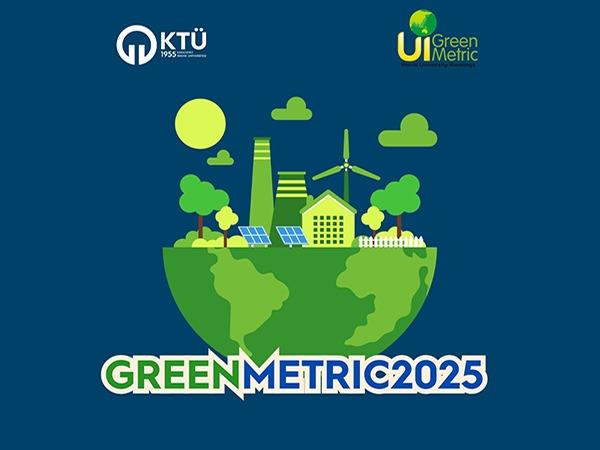
Our University has achieved another significant milestone in the UI GreenMetric World University Rankings.
08 December 2025
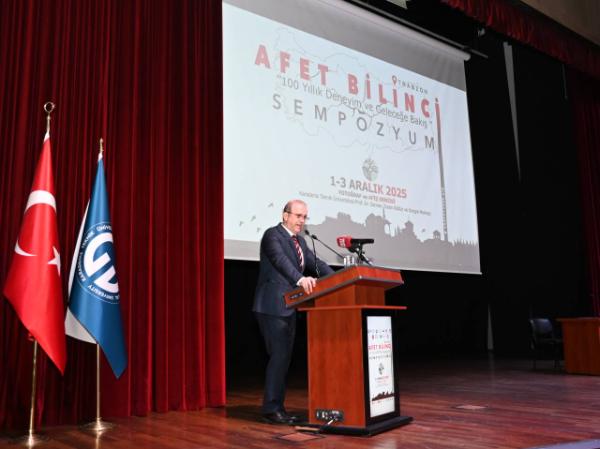
At the "Disaster Awareness: A Century of Experience" Symposium hosted at our university, 10 different themes related to disaster management were addressed.
05 December 2025

The conference was held at the Prof. Dr. Osman Turan Culture and Congress Center with the honored participation of TRNC Speaker of the Assembly Dr. Ziya ÖZTÜRKLER.
04 December 2025
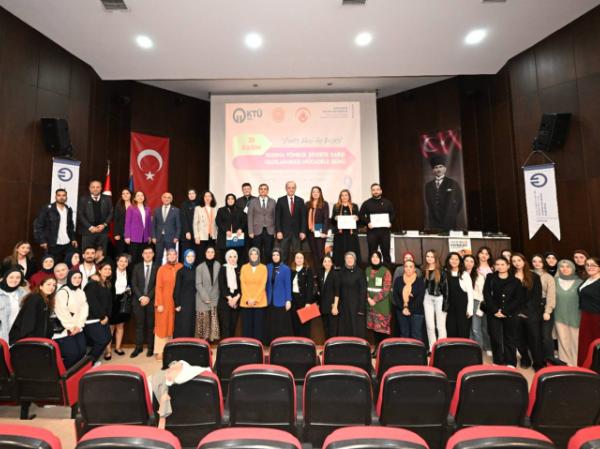
A panel titled "Shared Responsibility from Academia to Society in Combating Violence Against Women" was held at the Prof. Dr. Osman Turan Cultural and Congress Center.
26 November 2025
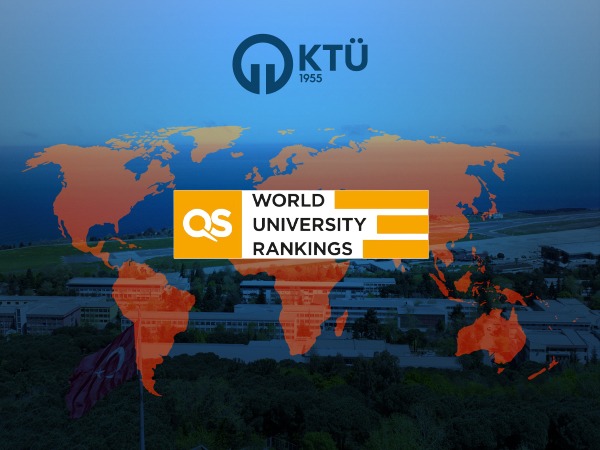
Our University has achieved remarkable progress in the Quacquarelli Symonds (QS) 2026 Sustainability Rankings.
20 November 2025

The proposal to establish the APİMER at our University has been approved at the Executive Board of Council of Higher Education.
18 November 2025
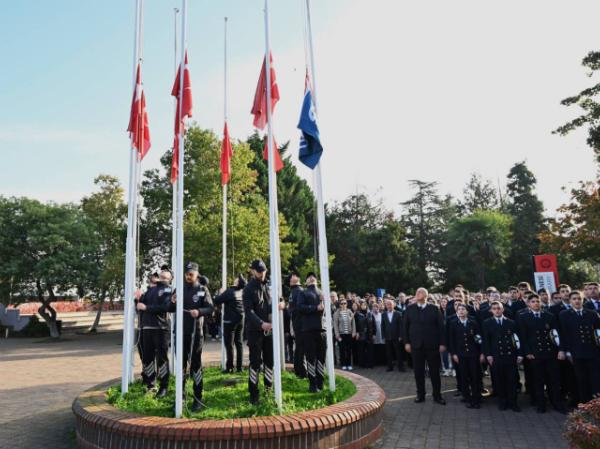
As part of the 87th anniversary of the passing of Gazi Mustafa Kemal ATATÜRK, a commemoration program was held at our university.
11 November 2025
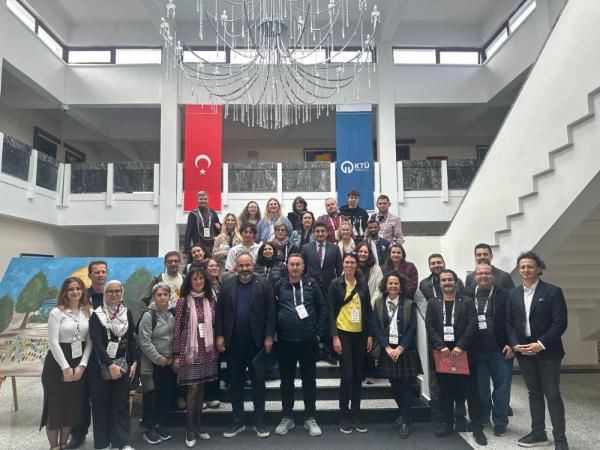
23 representatives from 11 different countries and 15 different universities attended the event during which Karadeniz Technical University and city of Trabzon were introduced.
10 November 2025
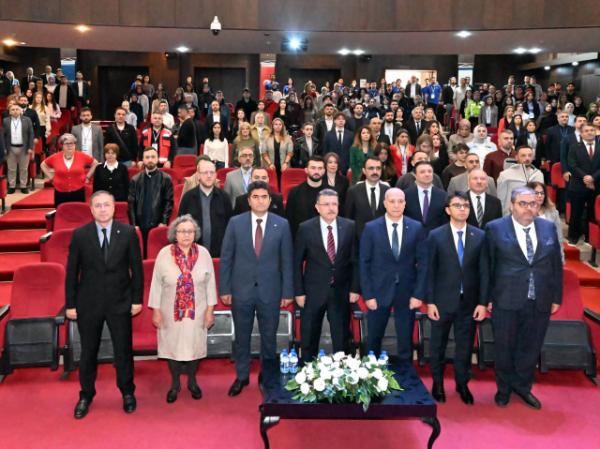
The ?Human Resources Career Congress and Fair? started with an opening ceremony held at the KTU Osman Turan Culture and Congress Center.
06 November 2025
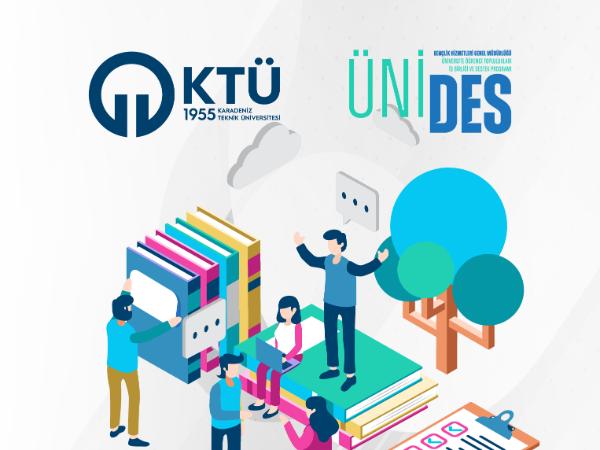
Projects selected for funding under the 5th Term of the University Student Communities Collaboration and Support Program (ÜNİDES) have been announced.
04 November 2025
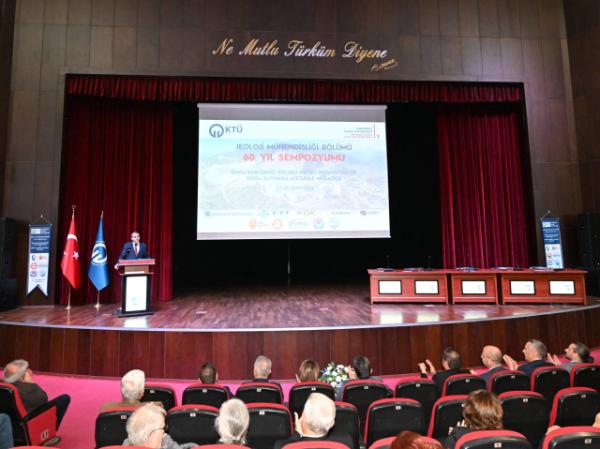
The Department of Geological Engineering at Karadeniz Technical University (KTU) celebrated its milestone with the "60th Anniversary Symposium of Geological Engineering."
04 November 2025
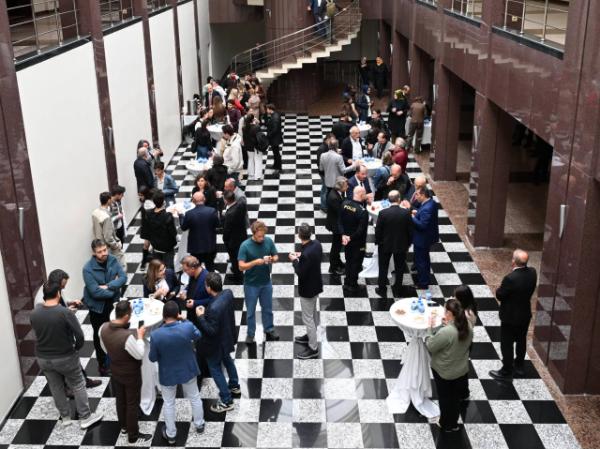
The panel titled "Water and Forest Management in a Changing Climate" was held on October 16?17, 2025, at the Prof. Dr. Osman Turan Culture and Congress Center.
04 November 2025
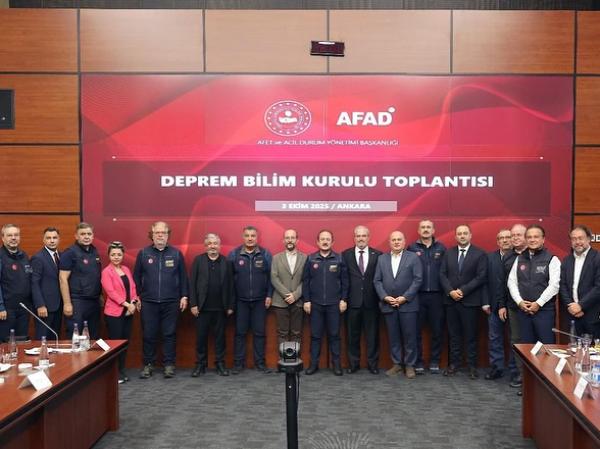
Prof. Dr. Ahmet Can ALTUNIŞIK has been appointed to the Earthquake Science Board of the Disaster and Emergency Management Presidency (AFAD).
07 October 2025

